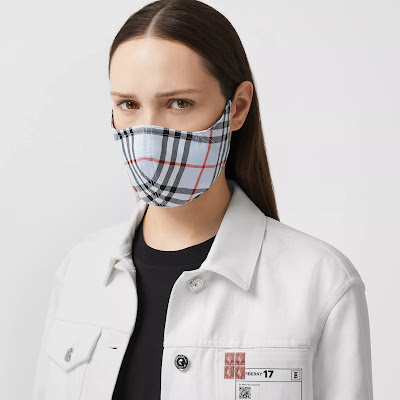Masks Cause Headaches, Itching, and Lower Oxygen Intake: Study
While 17 percent of surgical mask wearers experienced itching, this number was at 51 percent among users of N95. Acne prevalence among mask users was at 38 percent and skin irritation was at 36 percent. Dizziness was found to be prevalent among 5 percent of subjects.
“Masks interfered with O2-uptake and CO2-release and compromised respiratory compensation,” the review states. “Though evaluated wearing durations are shorter than daily/prolonged use, outcomes independently validate mask-induced exhaustion-syndrome (MIES) and down-stream physio-metabolic disfunctions. MIES can have long-term clinical consequences, especially for vulnerable groups.”
The restriction of oxygen uptake and hindrance in carbon-di-oxide release was identified as more significant among users of N95 masks. Continuous rebreathing of carbon dioxide results in the “right-shift of hemoglobin-O2 saturation curve.”
“Since O2 and CO2 homeostasis influences diverse down-stream metabolic processes, corresponding changes toward clinically concerning directions may lead to unfavorable consequences such as transient hypoxemia and hypercarbia, increased breath humidity, and body temperature along with compromised physiological compensations,” the review states.
The review also said that several mask-related symptoms may have been misinterpreted as symptoms of long COVID. “In any case, the possible MIES contrasts with the WHO definition of health,” it states, referring to the World Health Organization.
It suggested that the side effects of face masks be assessed based on risk-benefit analysis after taking into consideration their effectiveness against viral transmissions. If “strong empirical evidence” showing the effectiveness of masks is absent, the study recommended that wearing masks should not be mandated, “let alone enforced by law.”
Sudden Mask Policy Change, Suppressing Studies
Prior to the COVID-19 pandemic, existing data on respiratory viruses had shown that there was no basis for wearing masks to prevent their spread. “All the studies done in the world until 2020 showed that there is no justification for this,” Yoav Yehezkelli, a specialist in internal medicine and a lieutenant colonel in the Israel Defense Forces, said in an interview with The Epoch Times in January.
The U.S. Centers for Disease Control and Prevention as well as the WHO issued guidelines that there was no need for wearing masks in the general public, he pointed out.
But in 2020 following the COVID-19 outbreak, recommendations on mask-wearing around the world suddenly changed “without having any new professional support to confirm that it does indeed have effectiveness against respiratory infection.”
A December letter that he co-wrote and sent to the Israel Medical Association Journal pointed to multiple studies suggesting that wearing masks can end up causing harm.
Potential negative effects include headaches, shortness of breath, a dip in blood oxygen levels, a rise in carbon dioxide levels, concentration difficulties, and bacterial contamination. The accumulation of CO2 can end up causing tiredness, blurriness, and sleepiness, he noted.
There have also been attempts to subdue studies that expose the ineffectiveness of masks. A 2023 study published in the Cochrane Database of Systematic Reviews stated that wearing masks made “little or no difference” when it came to the transmission of COVID-19.
A columnist at The New York Times published an opinion piece titled “Here’s Why the Science Is Clear That Masks Work” and reached out to Cochrane for its view. The editor-in-chief at Cochrane then issued a statement saying that it’s an “inaccurate and misleading interpretation” to say the study shows that masks do not work, adding that the publication was “engaging” with the authors on updating the article’s abstract.
However, the authors refused to do so, with the lead author insisting that “there is just no evidence that [masks] make any difference … full stop.”
Reposted from: https://www.theepochtimes.com/health/masks-cause-headaches-itching-and-lower-oxygen-intake-study_5181866.html
Read More: Face Mask series






.png)


Comments
Post a Comment